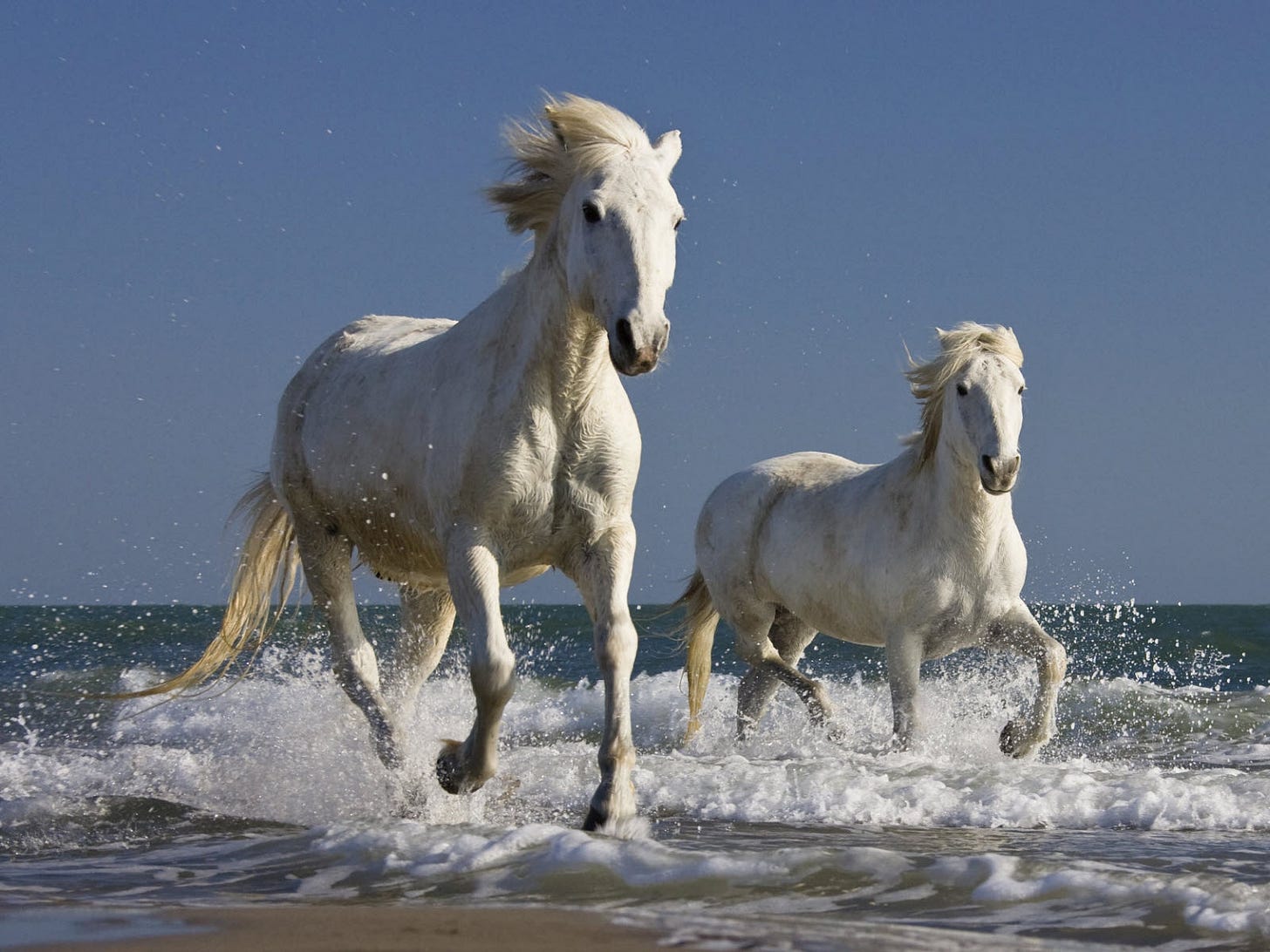The Horses Suffered at the Olympics!
🐴By Kathy Guillermo🐴
"Whipping to force a piaffe. Painful rollkur. Blue tongue. These are not phrases typically associated with the Olympic Games.
But this year, because of the mistreatment of horses in the equestrian events in Paris, phrases with confusing — and sometimes diabolical — meanings have been added to our vocabulary.
Even if you’d never heard of a painful hyperflexed neck, the underlying message came through loud and clear: Horses are being abused in riders’ pursuit of Olympic glory.
Just hours after the video of Great Britain’s Charlotte Dujardin viciously whipping a horse was released, calls came from within the equestrian community to change the culture and end the cruelty.
Here’s my message for Olympic riders: You want to end the violence? Retire. Take yourselves and the horses out of the Olympics entirely.
Riders likely won’t do this voluntarily, so the International Olympic Committee must remove all equestrian events from the Games. Because, frankly, we’ve heard the excuses and the “one bad apple” defense many times before. The grotesque practices are so widespread that, apparently, the outliers are the riders, coaches and veterinarians who don’t abuse the horses.
We heard the excuses when Colombian American Olympic coach and former rider Cesar Parra was caught on video whipping one horse and tying down the head of another, when Swiss Olympian Martin Fuchs whipped a clearly terrified horse who didn’t want to jump a fence, when Canadian Eric Lamaze’s horse dropped dead during a stadium jumping event, when renowned German Olympian Ludger Beerbaum was caught “barring” a horse (whacking him in the shins with a stick to make him jump higher), when British Olympian Sir Mark Todd repeatedly beat a reluctant horse with a thick tree branch — and on and on.
Olympic equestrian events don’t represent the finest in athletic achievement. They are a perversion of the original values as expressed in the Olympic Charter of developing harmony and preserving human dignity. They reflect a profound misunderstanding of who horses are and what they need. It doesn’t matter if Olympic contenders spend 14 hours a day, seven days a week with horses and call them “partners.” If they think it’s acceptable to use such harsh bridles that blood flow to the tongue is cut off (resulting in “blue tongue”), they don’t really know or care about the animals they use.
Yet the ruling body of this sport, the Fédération Equestre Internationale (FEI), has just announced that it identified blue tongue in several horses used in the dressage competition — and inexplicably says this won’t affect the medal placement of the riders. Why are equine events, in which unwilling participants are already subjugated and forced to perform, the only Olympic sport that essentially endorses violations?
The FEI and Olympic judges even tolerate the use of marshmallow creme on the lips of horses so that the sugary smear creates a white coating or foamy substance that can hide the ugly blue tongue.
Two riders were eliminated when judges saw blood coming from the mouth of one horse and dripping down the leg of another, and a complaint from PETA did prompt the FEI to issue a rare yellow card warning to Brazilian rider Carlos Parro for forcing a horse’s neck into an extremely painful hyperflexed position so exaggerated that the neck appears deformed. This banned position, known as “rollkur,” compromises breathing and can damage the spine and lead to long-term health issues.
Yet rollkur is still being used to abuse horses three decades after it first became popular through harsh training methods involving a double bridle and tight bands around the horse’s nose. Its ban is so completely ignored by judges and officials that human competitors violate it at will.
There’s no fixing a sport that involves such deeply entrenched violence and a brazen disregard for both the horses and the rules. The International Olympic Committee must stop pretending it can make it better and chuck it out now. A few people will be unhappy. The horses, however, will be profoundly relieved, and so will the rest of us.
#######
Horses in the wild:

